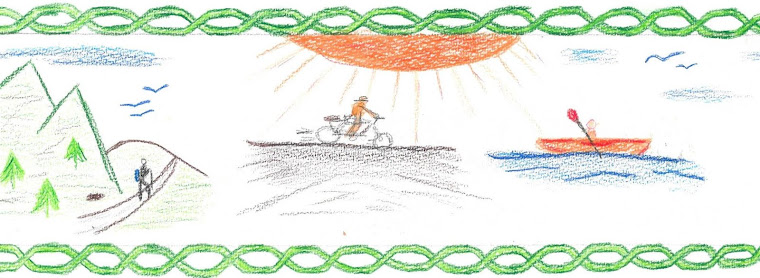Lectionary
Ruminations 2.0 is a revised continuation of Lectionary Ruminations. Focusing on The Revised Common Lectionary Readings for the upcoming Sunday from New Revised
Standard Version (NRSV) of the Bible, Lectionary
Ruminations 2.0 draws on nearly thirty years of pastoral experience. Believing that the questions we ask are often
more important than any answers we find, without overreliance on commentaries I
intend with comments and questions to encourage reflection and rumination for
readers preparing to teach, preach, or hear the Word. Reader comments are
invited and encouraged. All lectionary
links are to the via the PC(USA) Devotions and
Readings website.
FOR AN UPDATED AND REVISED VERSION, GO
TO THIS LINK
22:1-2, 8-9, 22-23 This
Reading sounds like a collection of fortune cookie inserts.
22:1 What is the history
and meaning of your name? What name is
above every other name? What is “favor”?
22:2 Is this ALL the rich
and poor have in common?
22:8 Let all those running
for President this election cycle beware. While this seems true, it seems to
take time for justice to work itself out.
22:9 How are the generous
blessed. Are we called to chare only bread?
22:22 How are the poor
often robbed? Is it alright to crush the afflicted if they are not at the gate?
22:22-23 This reads like a
passage for the 99% and a nation obsessed with wealth over justice for the poor
and oppressed.
125:1 How do you define
trust? If a person had enough faith, could they move even Mount Zion?
125:2 How do the mountains
surround Jerusalem? What is it about being surrounded by mountains that is good
news?
125:3 What is a scepter and
what does it symbolize?
125:4-5a Is this a theology
of reward and punishment? Is there a self-fulfilling prophecy at work here?
125:5b What would peace
being upon Israel look like today?
21:1 What “acts of
favoritism” are being referred to?
21:2-4 Have you ever
witnessed any such thing? Do many congregations still consciously or unconsciously
show such favoritism? I thought this went away with the phase out of rented
pews.
21:5-7 Here is some more
Scripture with good news for the 99% and a word of judgment for the 1%.
21:8 Why is this law
referred to as “the royal law”?
21:9-10 This sounds like
Paul.
(21:11 This verse seems to
me to get it backwards.
21:12 What is “law of
liberty”?)
21:14 I am hearing refrain
from last Sunday. Can faith save YOU?
21:15-16 Does James
distinguish between showing compassion for other Christians and non-Christians?
21:17 Faith, without works,
might be dead. But what are works
without faith?
7:24 Who set out from
where? What do you know about Tyre? Why did Jesus not want anyone to know he was
in the house? Escaping notice does not seem to be the Church’s problem today.
7:25 How do post-modern,
scientifically informed people of faith handle passages like this that speak of
“unclean spirits”? Hd this woman not heard about Jesus before?
7:26 What difference does
it make that she was a Gentile? Of
Syrophoenician origin?
7:27 How do you react to
the fact that Jesus said this? Was Jesus quoting something?
7:28 Let’s hope crumbs is
all the dogs eat while they are under the children’s table.
7:29 Why was her response
rewarded?
7:30 How could Jesus heal
someone without that person even being present for laying on of hands?
7:31 What do you know of
Sidon abd the region of the Decapolis? Do these geographical references really
matter?
7:32 What sort of
impediment do you imagine?
7:33 Why in private? Why put fingers in ears and touch tongues
instead of laying on hands?
7:34 What language is
“Ephphatha”? Where else in Scripture do
we hear a world like this?
7:35 Note Mark’s reliance
on “immediately” as in this verse and 7:25
7:36 What do you know about
“the Messianic secret”? Who did Jesus order not to tell?
7:37 When was the last time
you or members of the congregation you are associated with were astounded? Why
does this Gospel have people talking about Jesus healing the deaf and mute but
not the possessed?
ADDENDUM
I am currently serving at the Interim Pastor of The Presbyterian Churchof Cadiz, worshiping at 154 West Market Street, Cadiz, Ohio, every Sunday at
11:00 AM. Please
like The Presbyterian Church of Cadiz on facebook.